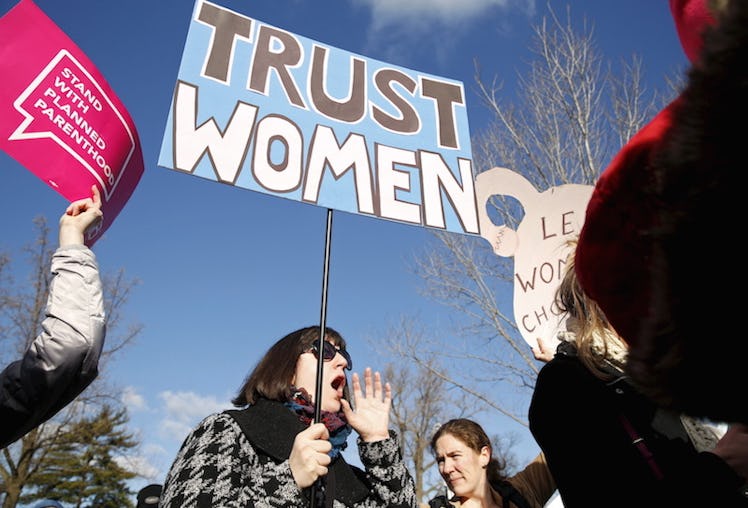
Scientists Are Testing A Service That Mails Abortion Pills Right To Your House
When a woman chooses to have an abortion, she's often faced with two options: having an abortion inside a hospital or a clinic, or taking what's known as "abortion pills."
According to Planned Parenthood, a lot of women are more comfortable with abortion pills because they're private, don't require anesthesia and feel "less invasive" and "more natural."
A lot of women are more comfortable with abortion pills because they're private.
While abortion pills do have rare medical risks — bleeding, partial abortion and uterine blood clots — most women are able to take them safely.
But unlike emergency contraception (aka Plan B), abortion pills are not sold in pharmacies and are only available at select abortion clinics, women's health centers and hospitals.
However, a new study, the TelAbortion Study, aims to give women greater access to abortion pills by mail. These types of abortions are currently referred to as "telabortions."
First off, what exactly are abortion pills? According to Live Science, "abortion pills" refers to mifepristone and misoprostol, two medications that are taken to abort the pregnancy during the first 10 weeks.
Participants who want telabortions are first required to have a video consultation with a doctor. Then, they have blood tests and an ultrasound completed.
After completing those tests at a nearby medical facility, the pills are mailed to participants, who receive further tests and virtually consult with a doctor again once they've finished the pills.
While there are some states that allow you to consult with a doctor online for access to abortion pills, they still require you to visit a clinic to pick up the pills. And for a lot of women, that's the most daunting, intimidating, triggering part of the process.
Researchers are now testing the safety of telabortions. Out of the 12 women who have participated in the study, 11 experienced no medical complications after having a telabortion and 10 would even encourage others to consider the process.
Director of the Jacobs Institute of Women's Health Susan Wood expressed that she thinks telabortion is a positive move for women's reproductive health, telling The New York Times, "It's absolutely an important step forward to expanding access to abortion that is safe and effective and creating options for women."
This type of service could be groundbreaking for people who live in parts of the country where it's nearly impossible for women to gain access to safe abortions.
All too often, women are afraid to enter an abortion clinic because they know to expect being harassed and bullied by the opposition on their way inside.
All too often, women are afraid to enter an abortion clinic because they know to expect being harassed.
In some cases, women are even photographed and "outed" by protestors in their community for their deeply personal medical decision.
The thought of being attacked for merely entering the clinic can be so traumatic, women will even opt out of it entirely.
Even accessing a clinic at all is a problem for women in several states. There are currently five states with only one abortion clinic, and dozens of clinics have been forced to close their doors due to tight state restrictions and lack of funding.
With President-elect Donald Trump on a strict anti-abortion platform, it's safe to assume access to abortion is not going to get easier for women anytime soon, but Telabortion is an alternative way women can still have access to their fundamental reproductive rights.